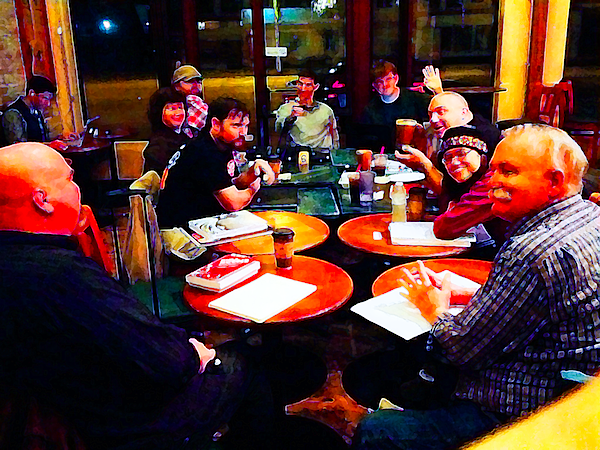At last, I’ve completed my 15th National Novel Writing Month challenge successfully! Victory, for the thirteenth time!
The graph says “HEX CODE”, but as I’ve said before, I discovered in July’s Nano that the manuscript I was working on was actually a trilogy - I already knew that Cinnamon appeared in a trilogy of books called HEX CODE, BOT NET and ROOT USER, but I was puzzled as to why the HEX CODE manuscript seemed both so cramped and so overstuffed. The reason? I was already writing the trilogy, with a discernible “hex code” appearing first, followed by a “bot net” then a “root user”. So I split the manuscript up … and just kept writing, until, earlier this month, I rolled over the end of HEX CODE.
Perhaps that’s why I was doing so well this year, or perhaps it’s because I’ve written almost seven hundred thousand words in National Novel Writing months at this point. But regardless, I had some real bursts of creativity in there. But even then, I have to tell you: it was always hard. The hardest words on this one were the last 8 … when I thought I was done. But you have to keep going! And the scene that popped out after that is beautiful.
Regardless, National Novel Writing Month is a joy to participate in, and I’m glad to have done it. The people and the connections I’ve made, the friendships I’ve built, the fantastic events like the Night of Writing Dangerously, the great writing programs that Nano supports, and the worldwide outbursts of creativity have made it all so worthwhile I plan to do it again and again.
So, for now, I leave you with one last excerpt, from BOT NET … containing something I learned about my world of werekindred tonight, when I had to write … and let my creativity take over. As always, excerpts from Nano are first draft material, so, consider yourself advised … but I love what I discovered about Cinnamon’s warehouse tonight.
I looks down at them. All their eyes are glowin. The moon’s gotten into them. It will be up soon. I gots to go take them runnin’ now, or they’ll go crazy. I stands before them, rearin’ up a little, puffin’ my tiger cheeks, lookin’ down at them, and they gets the hint, and steps back from the wall, towards me, towards me, the tiger.
“Alrright,” I snarls. “None of ya get killed, or, as Mom would say, you’re grrrounded. ”
They all laughs, and I grins and stamps a paw.
“You feel the moon?” I says.
“We feel the moon!” they all shouts back. Whoa. Better response then I expected.
“I said, do you feel the moon!” I roars.
“We feel the moon!” the hunt screams.
“Then show me your beasts!” I snarls.
The lawyer strips off his jacket, his shirt, snarling, his head poppin’ out wolf so fast even Tully would have been proud of it. Hanser is a lynx before I’ve gotten a chance to look over at her, and the rest are poppin’ and changing. One buck is havin’ trouble, horns comin’ out of his head, fur crawlin’ over his body, but still no quad form, and I nods to Hanser, who pads over and licks at him playfully as he falls to the ground, crosseyed, eyes half pulled back like a buck’s.
But Willard, man, Willard’s havin’ real trouble. He’s bulked up, six and a half feet tall now, a black fur rug rippling out of his back, and oh-my-bod, what delicious muscles. But the shag carpet, it’s as far as he goes. He grunts, strains, then shakes his head.
He ain’t even taken his shorts off. He knows this is as far as he can go. Personally, I’m glad to have a half-human in the pack—easier to get feedback. He’s obviously got control, or they wouldn’t have given him to me, but is also obviously new to the Life. He needs help.
I prowls up to him.
“This your limit?” I asks, starin’ him in the eye. He nods, embarrassed, and looks away, but I raises a paw and catches him under the chin with the curved side of one of my claws, lookin’ at his head. “Listen to me: there’s no shame in our affliction. Repeat it.”
“Therrre’s no shame in ourrr aff—affl—affliction,” he says.
“Only prrride in our powerrr,” I says. “All of ya. Repeat it.”
“There’s no shame in our affliction,” the lawyer says, like, real articulate, even though he’s on all fours now, and his head’s all wolf. When’s this lack of concentration supposed to kick in? He shakes that wolf head back and forth, then howls, “Only prrride in our powerrrr!”
“Therrre’s no shame in ourrr affliction,” I roars, “only prrride in our powerrr!”
I prowls back and forth in front of them, listenin’ to them repeat it, those that can. The rest yip and yap and bark … except for the buck, who’s sittin’ there, dazed. His eyes are stuck halfway between human and stag, and he looks winded and dazed.
“But never rushin’ the hardest job any human ever has to do: controllin’ their own beast,” I says, steppin’ up to him. “You ain’t ready. There’s no shame; there’s always next moon. But this one, you ain’t ready. You relax, let the elders care for ya.”
The buck nods, still crosseyed, lickin’ his lips.
“Yyyouw waaant meeee,” Hanser yips, then goes quiet.
I looks back to see Fischer, standin’ there, under his broadbrimmed hat. He’s got the doc with him, black bag under his arm, I mean, seriously, cliché! But he nods to us, and they goes and sits with the buck as the rest of my hunt firms up before me.
“Four in front of you, Willard,” I snarls. “Or anyone else wanna sit this moon out?”
The pack howls and yips and brays, crowdin’ forward.
“Nnnever!” Willard says, beatin’ his chest.
“Yall wanna run?” I snarls.
The pack makes a yippin’. Weak.
“Eye said, y’all wanna run?” I roars.
And my whole hunt howls at the top of their lungs.
“Then let’s rrrun,” I roars, and Hanser at my side, bolts off into the forest.
Enjoy. And onward!





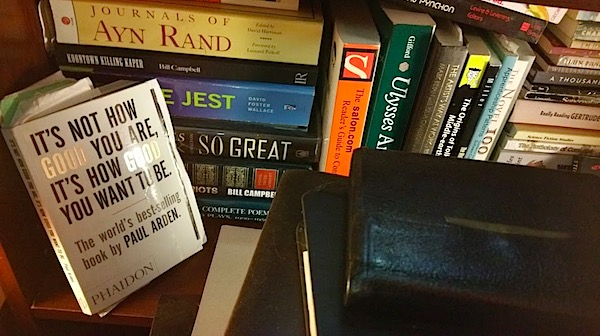
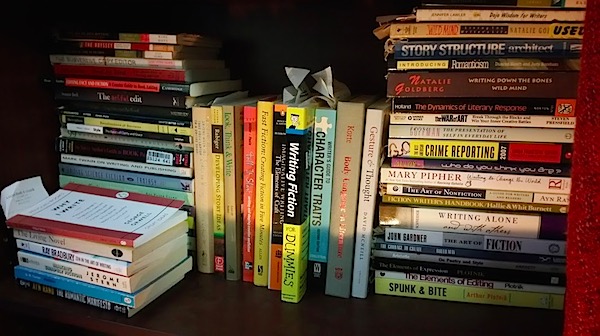
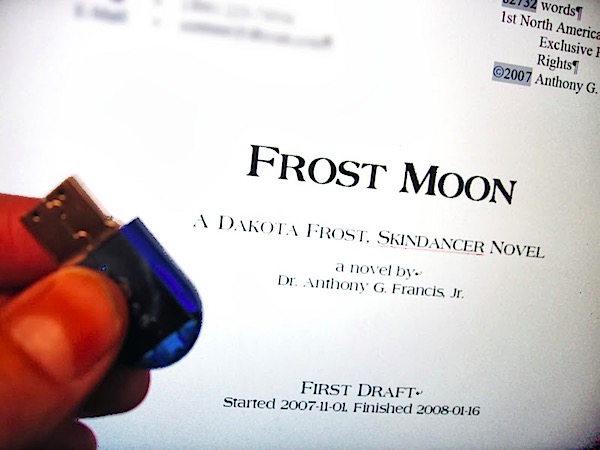
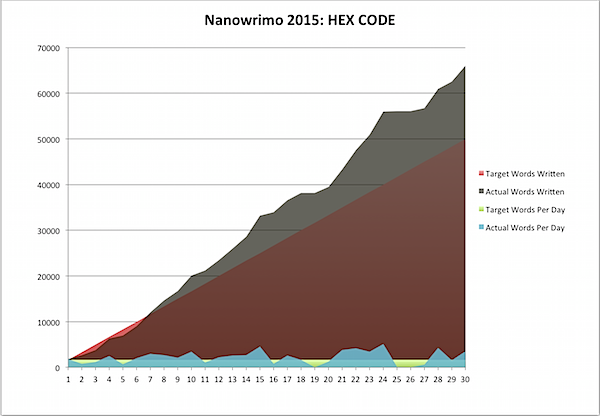

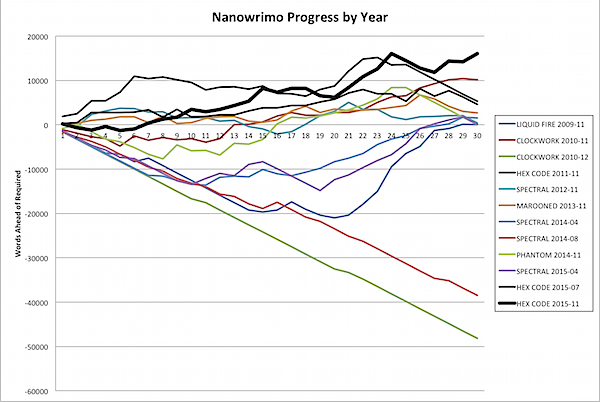
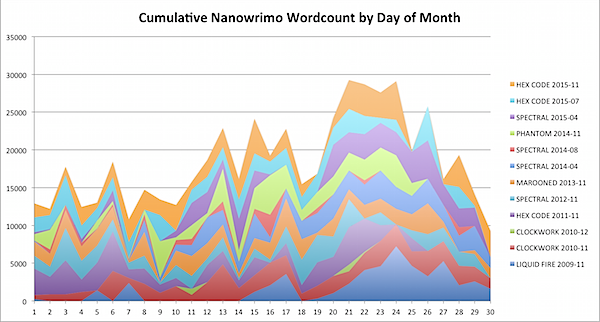

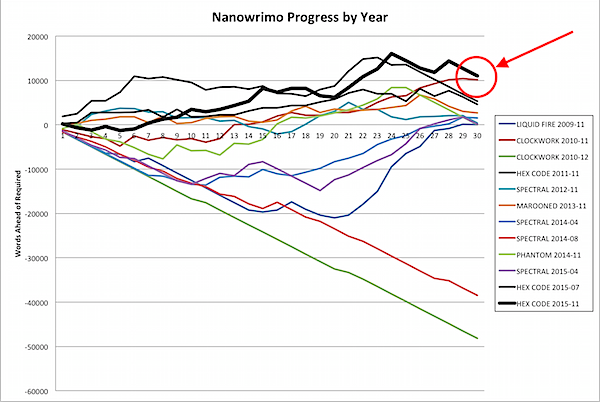


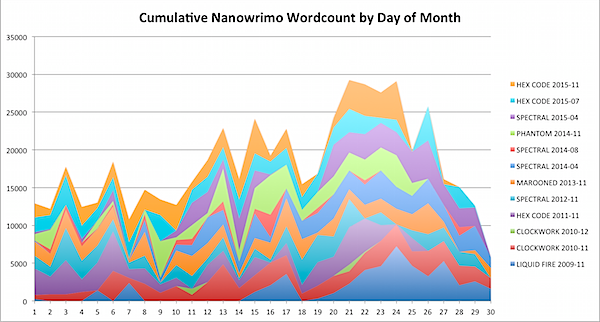
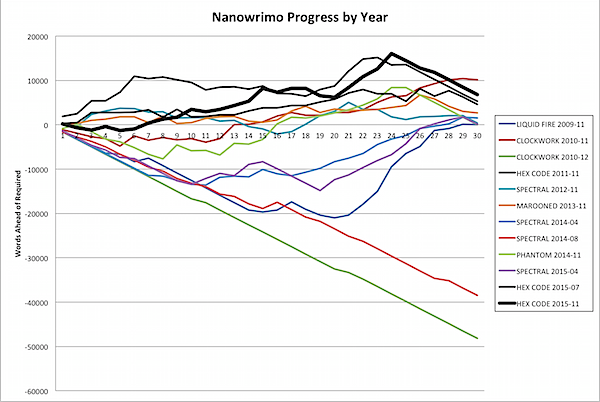

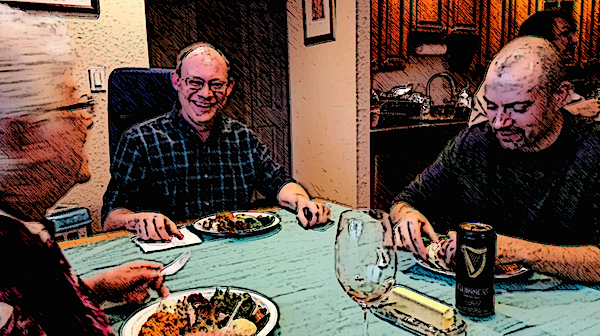

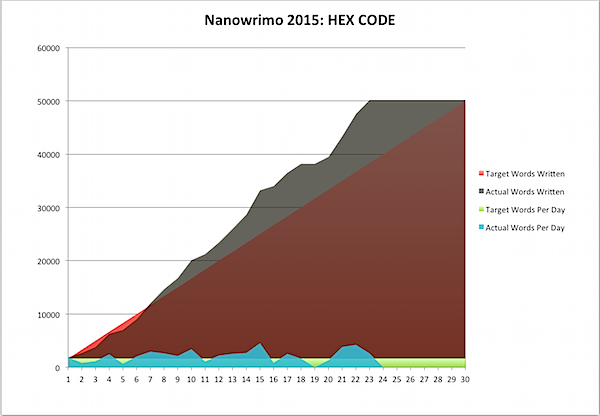
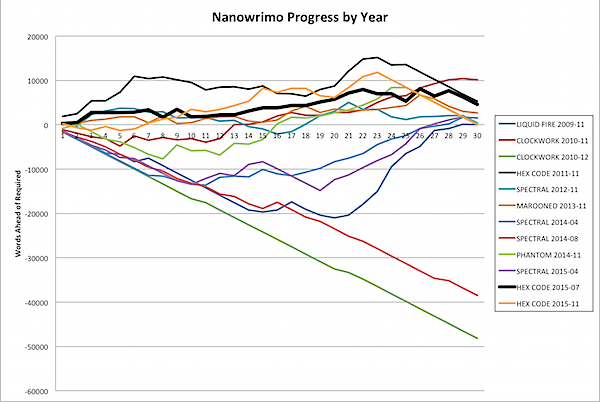


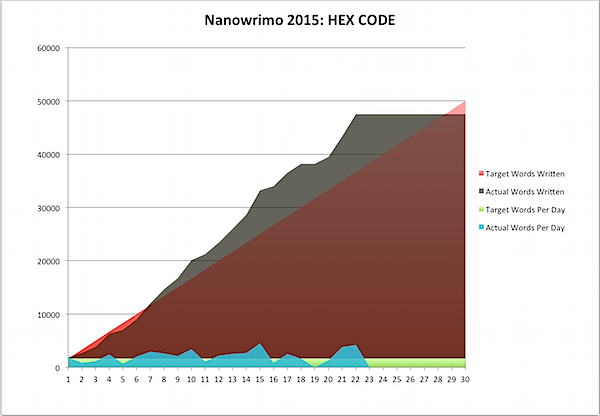






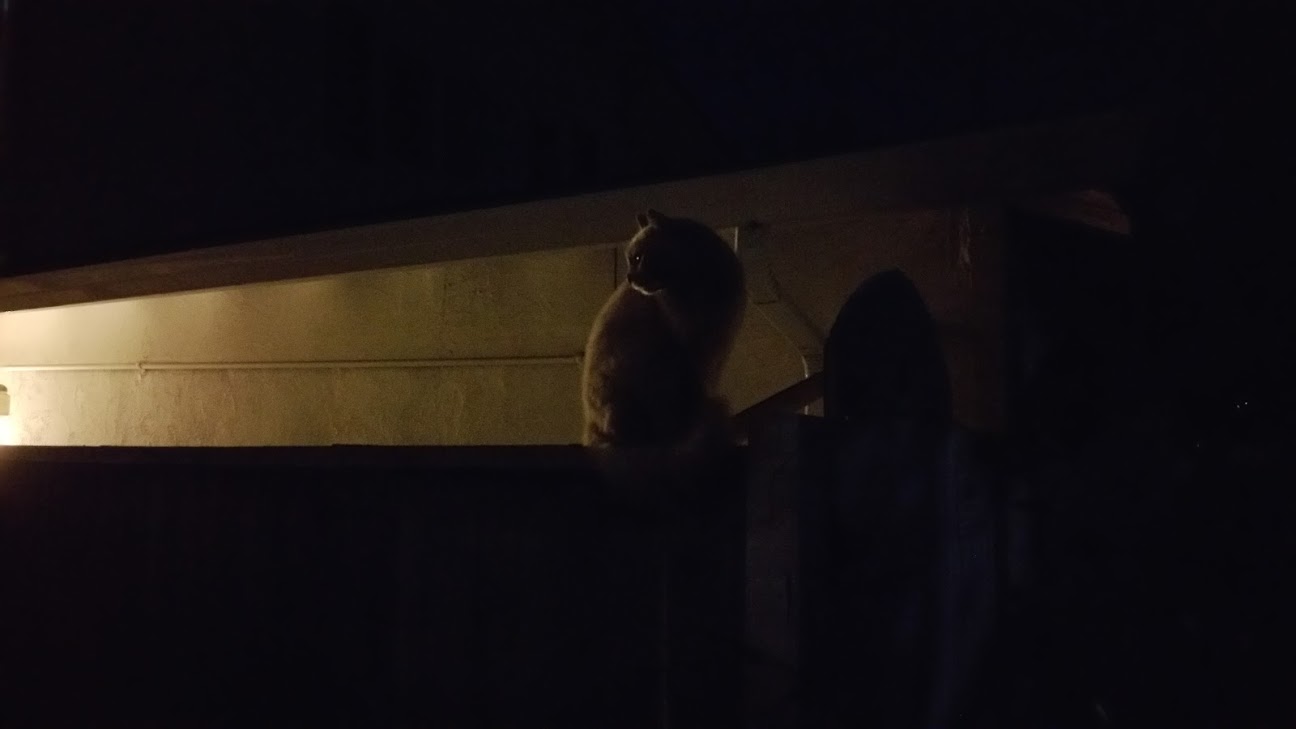

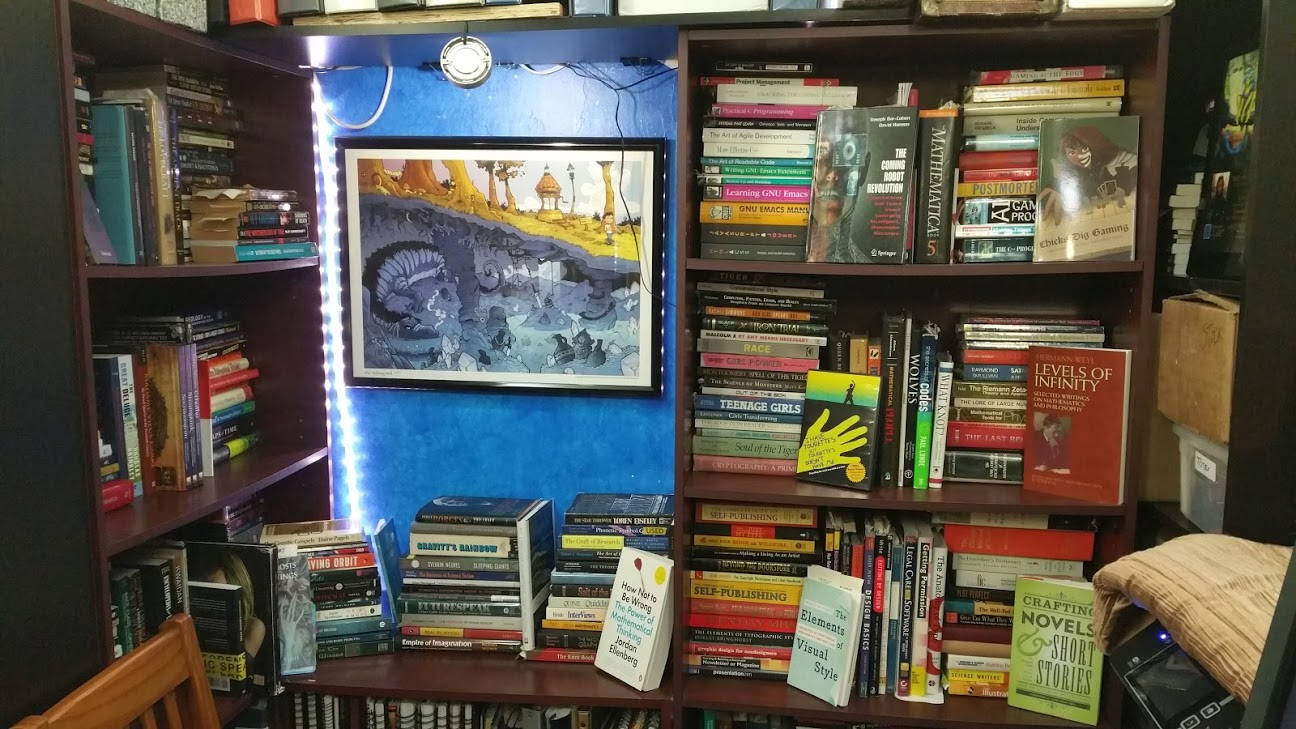
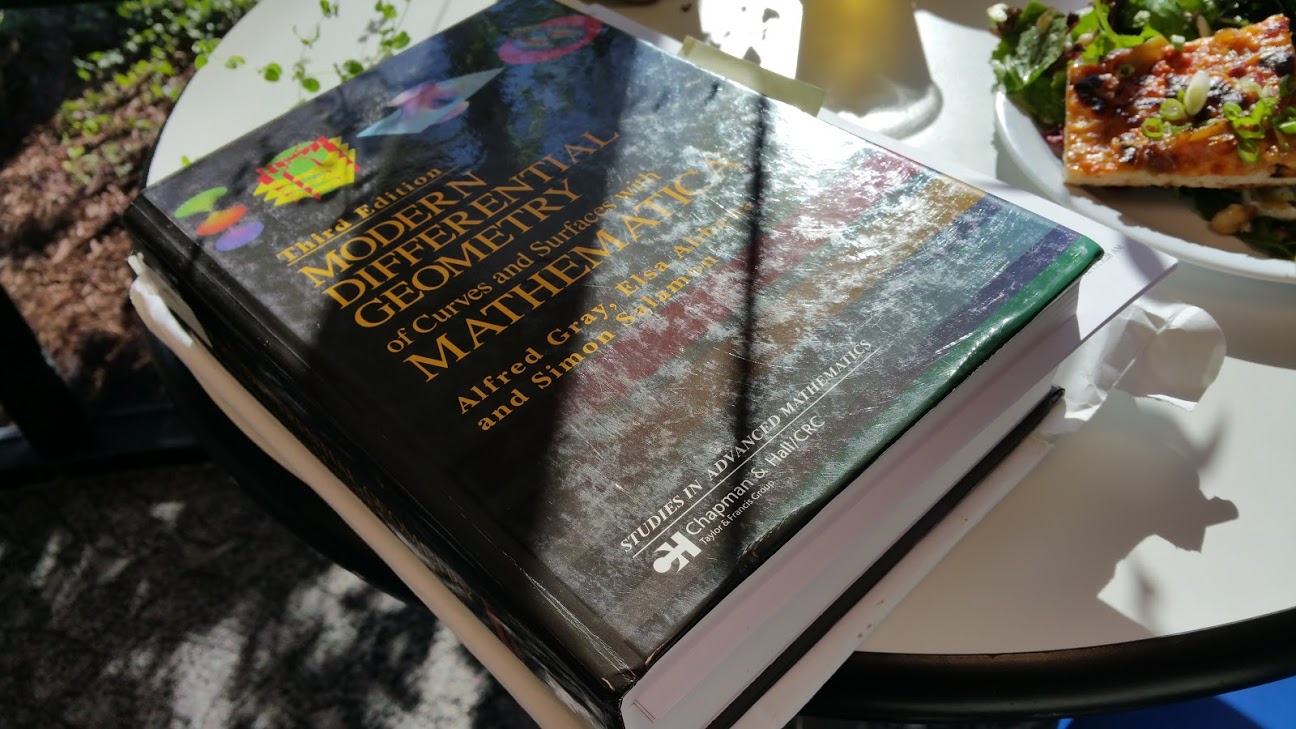


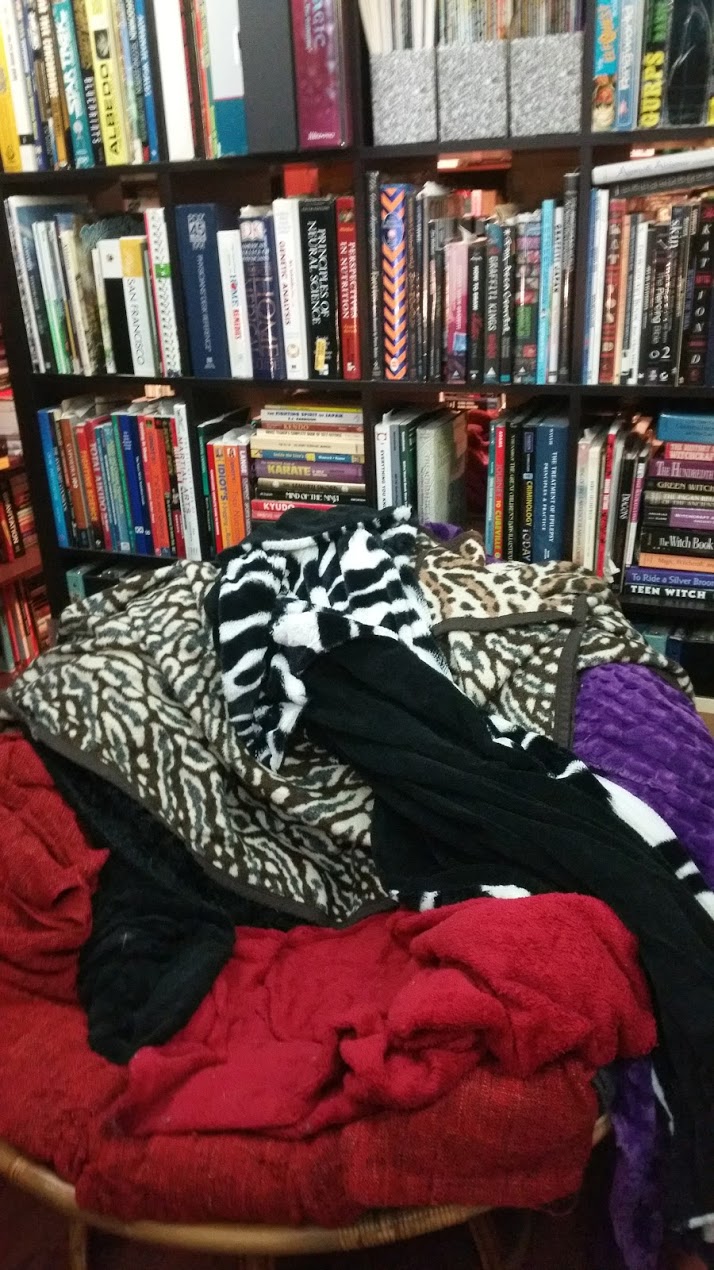
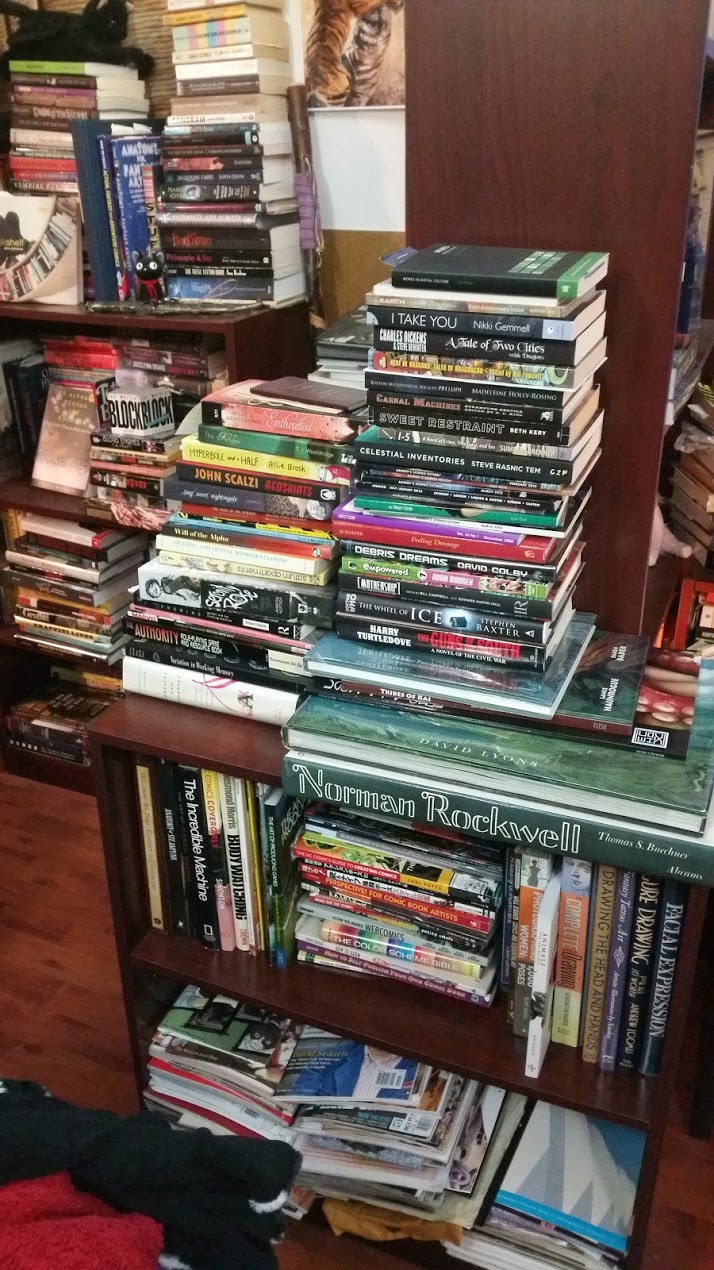
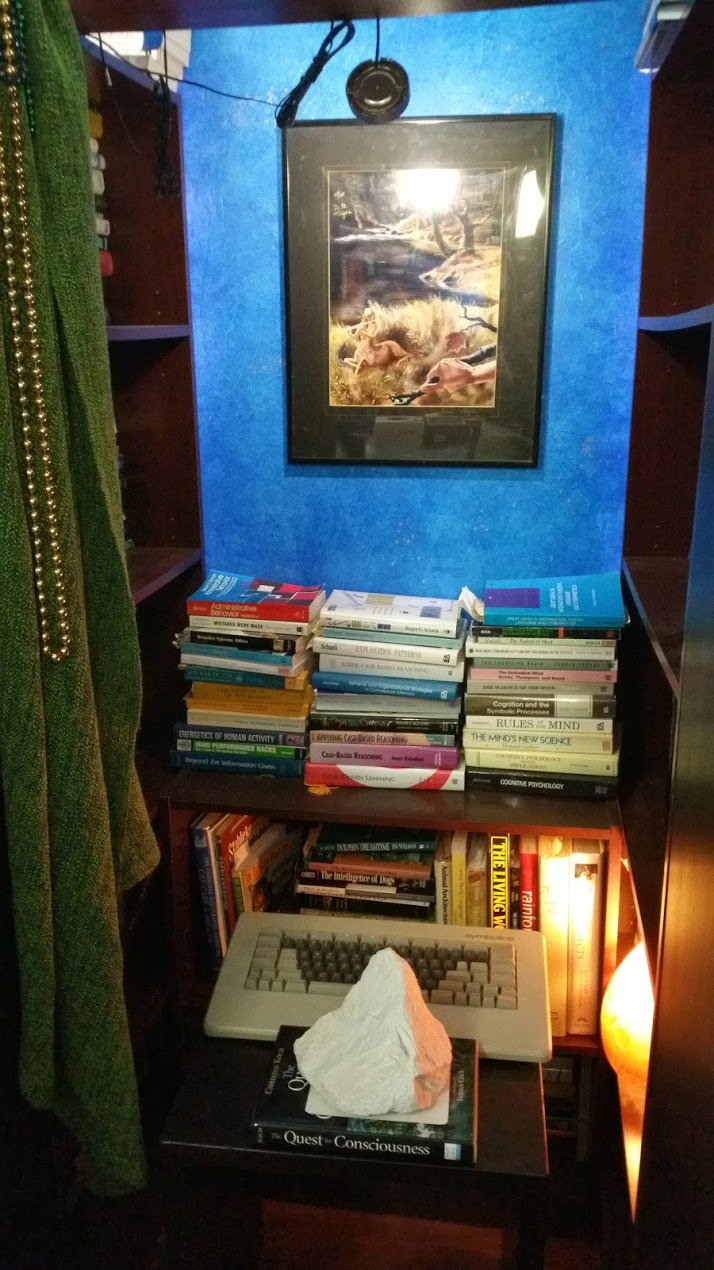
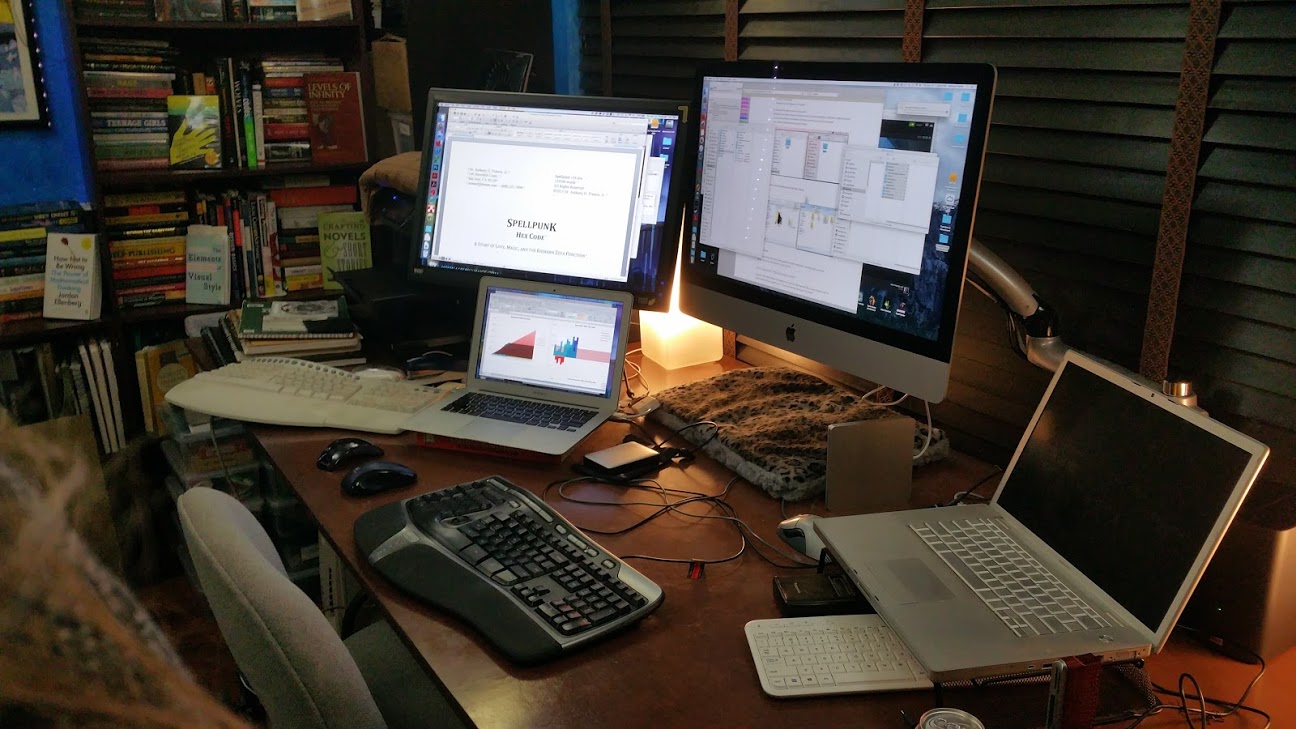

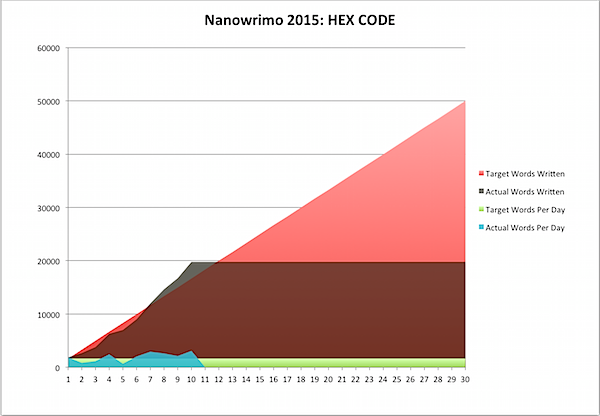




 -the Centaur
-the Centaur

